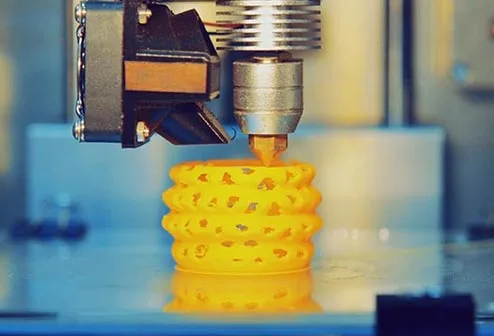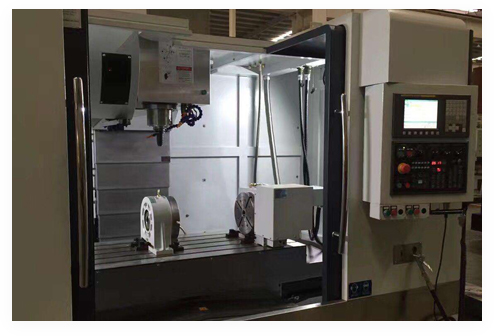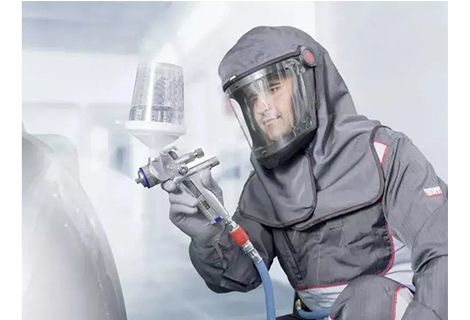A Numerical Control Shop is a term widely used in the manufacturing industry to refer to a factory or shop that utilizes computer technology and numerical control (NC) equipment to control and automate machining and manufacturing processes. NC stores play an important role in modern manufacturing, utilizing advanced NC equipment and software to precisely control the movement of machine tools, robots, and other manufacturing equipment to produce high-quality parts and products. These shops typically cover a wide range of fields, including metal fabrication, plastics manufacturing, woodworking, glassworking, and the processing of a variety of other materials.
The development of CNC technology can be traced back to the mid-20th century. At that time, the manufacturing industry began to look for a more efficient and accurate method of controlling the movement of mechanical equipment in order to improve productivity and product quality. Traditional methods of controlling machinery typically involved manual operation or mechanical cams, and these methods had limitations in the machining of complex parts and in high-volume production.
With advances in computer science and electronics, CNC technology is coming into its own. CNCs enable high-precision control of machine tools, cutting machines and other equipment by sending digital signals to motorized drives on mechanical devices. The development of this technology has revolutionized the manufacturing industry, making industrial production more automated, efficient and precise.
The core of a CNC store is its equipment and tools, which are controlled through a CNC system. Following are some common CNC equipment and tools:
a. CNC machines: CNC machines are one of the most critical pieces of equipment in a CNC store. They include CNC mills, CNC lathes, CNC drill presses and CNC grinders. These machines use CNCs to control the precise movement of tools to cut, drill, mill and grind materials. CNC machines are usually more accurate and repeatable than conventional machines.
b. CNC Cutting Machines: These include CNC laser cutting machines, CNC plasma cutting machines and CNC water cutting machines. They are used to cut metals, plastics and other materials precisely into desired shapes.
c. CNC Welding Robots: Welding robots in CNC stores are used to automate the welding process, which can improve efficiency and quality when manufacturing parts and assembling products.
d. CNC Vertical Milling Machines: These machines are used to manufacture a wide variety of parts and are often used in the aerospace and automotive industries to manufacture high-precision parts.
e. CNC 3D printers: This is a relatively new type of CNC equipment used to manufacture complex parts and components by stacking materials layer by layer.
f. CNC woodworking machine tools: This includes CNC wood engraving machines, CNC sawing machines and CNC wood milling machines, etc., which are used for processing and manufacturing of wood and wood-based materials.
g. CNC Glass Cutting Machines: These machines are used to cut glass into desired sizes and shapes and are commonly used in glass doors, windows, mirrors and furniture manufacturing.
CNC stores have a wide range of applications in various areas of manufacturing. The following are examples of some of the major areas:
a. Aerospace: The aviation and aerospace industries require high precision components, and CNC machine tools and machining equipment play a key role in the manufacture of airplanes, rockets and spacecraft.
b. Automotive Manufacturing: The automotive industry relies on CNC machine tools and robots to manufacture engine parts, body parts and chassis components.
c. Medical Device Manufacturing: CNC technology is used in the production of medical devices, artificial joints, and surgical tools to ensure high quality and precision.
d. Electronics Manufacturing: CNC stores manufacture electronic parts and circuit boards to ensure high reliability and performance of equipment.
e. Shipbuilding: CNC cutting machines are used in the production of hull components, improving the efficiency of the shipbuilding process.
f. Furniture Manufacturing: CNC woodworking machines are used in the production of furniture components, providing highly accurate cutting and engraving capabilities.
g. Construction: CNC stone cutting machines and steel processing equipment are used to manufacture building components and decorative materials.
.jpg)
A "machine shop" and a "workshop" are two distinct types of facilities commonly found in various industries, particularly in manufacturing, engineering, and construction. While they share some similarities, they serve different purposes and have specific characteristics that differentiate them.
A machine shop is a specialized facility primarily dedicated to the machining of materials, especially metal. Machining refers to the process of removing material from a workpiece to create precise shapes and dimensions. Machine shops are equipped with a wide range of machine tools and equipment designed for various machining operations, such as cutting, drilling, milling, grinding, and turning. Here are some key characteristics of a machine shop.
Specialization in Machining. Machine shops are highly specialized in the machining of materials, and their equipment is designed for precision operations. They work with metals, plastics, and other materials, but their primary focus is often on metalworking.
Advanced Machine Tools: Machine shops are equipped with advanced machine tools. Machine shops are equipped with advanced machine tools like lathes, milling machines, grinders, and CNC (Computer Numerical Control) machines. These machines are capable of high-precision and high-speed operations.
High Precision. The primary goal of a machine shop is to produce parts and components with extremely tight tolerances and high accuracy. This is essential for industries like aerospace and automotive manufacturing.
Diverse Materials. While metal is a primary material, machine shops may also work with other materials like plastics, composites, and ceramics, depending on the specific needs of their customers.
Job Production. Machine shops often work on a job-shop basis, where they produce custom parts and components based on specific customer requirements. They may handle both prototype and production runs.
Skilled Machinists: Machinists in machine shops are highly specialized in the production of machine parts and components. Machinists in machine shops are highly skilled individuals who can set up and operate a wide variety of machines. They are trained to read technical drawings and program CNC machines.
Precision and Quality Control: Quality control is paramount in machine shops. Quality control is paramount in machine shops. They employ various measuring instruments and inspection methods to ensure that the produced parts meet the required specifications.
Industry Specific: Machine shops are commonly found in industries such as Machine shops are commonly found in industries such as aerospace, automotive, medical devices, and tool and die manufacturing, where precision machining is critical.
A workshop, on the other hand, is a more general-purpose facility that can serve a wide range of functions. Workshops are found in many sectors, including woodworking, metalworking, arts and crafts, maintenance and repair, education, and hobbyist activities. Here are some characteristics of a workshop.
Versatility. Workshops are versatile spaces designed for various tasks. They may include woodworking, metalworking, painting, electrical work, and more. The equipment and tools found in a workshop can vary widely.
The equipment and tools found in a workshop can vary widely. Workshops can support a wide range of activities, from building furniture, home repair, and metal fabrication to painting, pottery, and hobbyist projects. They are not limited to any specific industry.
General Tools. Workshops typically have a variety of hand tools and power tools, such as saws, drills, sanders, and welding equipment. The selection of tools depends on the activities performed.
Flexibility: Workshops can adapt to different tasks. Workshops can adapt to different tasks and projects. They are often less specialized than machine shops and can cater to a broader audience, including DIY enthusiasts and hobbyists.
Training and Education: Workshops are sometimes used for educational purposes. Workshops are sometimes used for educational purposes, providing a space for learning and skill development in various crafts and trades.
Training and Education: Workshops are sometimes used for educational purposes, providing a space for learning and skill development in various crafts and trades. Workshops are commonly used for equipment maintenance and repair in various industries, including automotive repair shops and maintenance facilities.
Customization and Creativity: In workshops, there is often more room. In workshops, there is often more room for creativity and customization. Individuals use workshops to bring their creative ideas to life, whether it's building custom furniture or crafting unique items.
Individuals use workshops to bring their creative ideas to life, whether it's building custom furniture or crafting unique items. The level of precision and quality control in a workshop can vary greatly, depending on the skills and expertise of the individuals using the facility.
The primary distinction between a machine shop and a workshop is their focus and specialization. A machine shop is a highly specialized facility dedicated to precision machining, often for specific industries like aerospace and automotive. In contrast, a workshop is a more versatile space used for a wide range of activities, from DIY projects and home repairs to artistic endeavors and general maintenance. While machine shops emphasize precision and specific industry applications, workshops are adaptable and cater to a broader array of needs and interests.
Richconn, since its inception in 2008, has been committed to providing outstanding solutions to our customers in precision machining. We proudly offer CNC machining services, sheet metal services, die casting services, surface preparation services and 3D printing services to meet the needs of a wide range of industries. Our superb craftsmanship and constant pursuit of excellence ensures that you receive unrivaled quality and innovation.
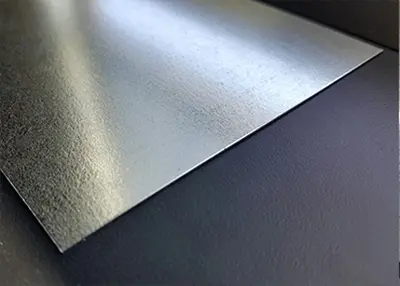 Richconn: Secondary ServicesOctober 12, 2023Many of our customers order parts that come ready-made from plastic injection molding or CNC machining. Many others, however, want or need "secondary machining" of the parts so produced.view
Richconn: Secondary ServicesOctober 12, 2023Many of our customers order parts that come ready-made from plastic injection molding or CNC machining. Many others, however, want or need "secondary machining" of the parts so produced.view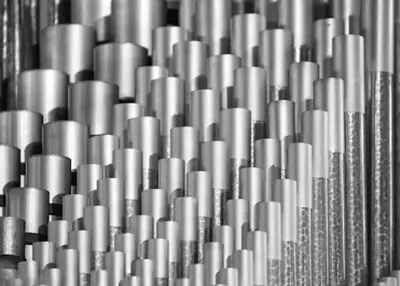 Bead Blasting 101: How Does a Bead Blaster Work?November 2, 2023Bead blasting is an abrasive technique where media is projected onto a surface. How does a bead blaster work to ensure a smooth bead blasting process? Read on.view
Bead Blasting 101: How Does a Bead Blaster Work?November 2, 2023Bead blasting is an abrasive technique where media is projected onto a surface. How does a bead blaster work to ensure a smooth bead blasting process? Read on.view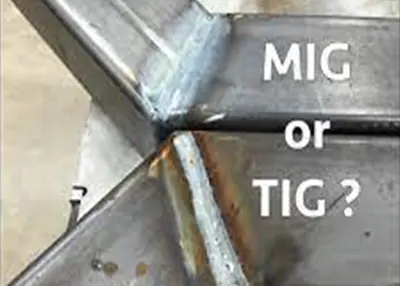 MIG Welding vs. TIG Welding: Choosing the Right Welding MethodSeptember 25, 2023MIG vs. TIG welding: Master the art, choose wisely. Explore techniques, applications, and trends for welding success.view
MIG Welding vs. TIG Welding: Choosing the Right Welding MethodSeptember 25, 2023MIG vs. TIG welding: Master the art, choose wisely. Explore techniques, applications, and trends for welding success.view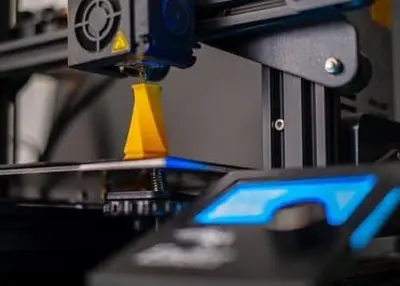 How Online 3D Printing Revolutionizes Design and Production?August 15, 2023The world of manufacturing has undergone a remarkable transformation with the advent of online 3D printing. This innovative technology has revolutionized how we bring ideas to life, offering a conveni...view
How Online 3D Printing Revolutionizes Design and Production?August 15, 2023The world of manufacturing has undergone a remarkable transformation with the advent of online 3D printing. This innovative technology has revolutionized how we bring ideas to life, offering a conveni...view A Basic Introduction to CNC LathesJune 11, 2024If you're eager to delve into the captivating realm of CNC lathes, this article is your gateway. Whether you're interested in their specific functionalities, wide-ranging applications, or significant roles in the manufacturing industry, this is the perfect read to quench your curiosity.view
A Basic Introduction to CNC LathesJune 11, 2024If you're eager to delve into the captivating realm of CNC lathes, this article is your gateway. Whether you're interested in their specific functionalities, wide-ranging applications, or significant roles in the manufacturing industry, this is the perfect read to quench your curiosity.view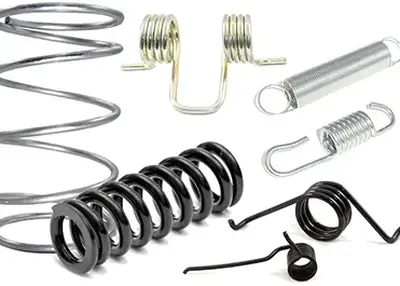 Unraveling the World of Machined Springs: Your Ultimate GuideNovember 9, 2023As a CNC machining service provider, we at Richconn understand the significance of precision engineering and how it's all about the details. In the realm of mechanical components, one topic that piques the curiosity of engineers, manufacturers, and professionals alike is -Machined Springs. In this comprehensive guide, I will walk you through the intricacies of Machined Springs, from the fundamentals to their applications, performance characteristics, manufacturing processes, and more.view
Unraveling the World of Machined Springs: Your Ultimate GuideNovember 9, 2023As a CNC machining service provider, we at Richconn understand the significance of precision engineering and how it's all about the details. In the realm of mechanical components, one topic that piques the curiosity of engineers, manufacturers, and professionals alike is -Machined Springs. In this comprehensive guide, I will walk you through the intricacies of Machined Springs, from the fundamentals to their applications, performance characteristics, manufacturing processes, and more.view
 EN
EN
 ru
ru 
